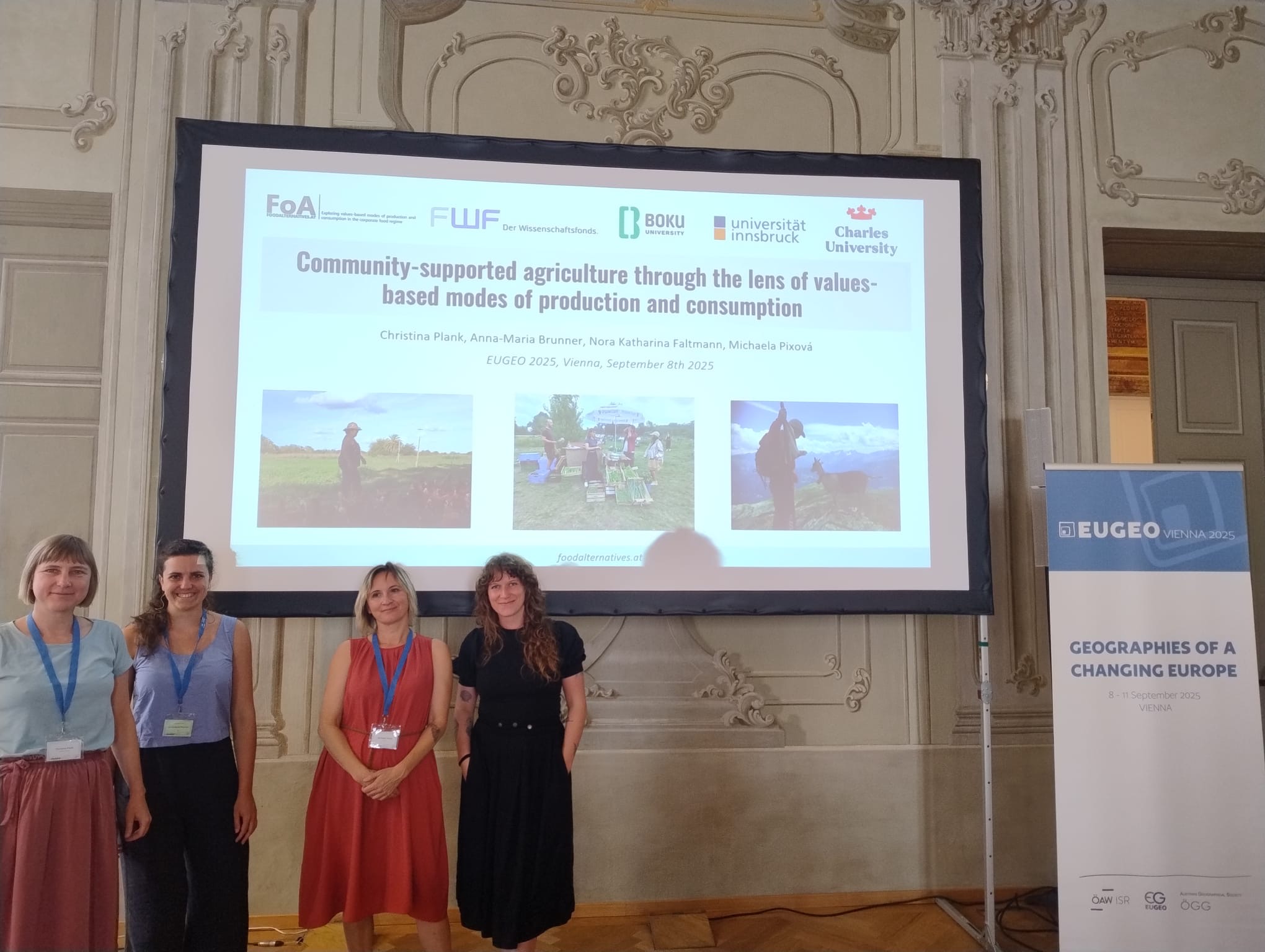Christina Plank, Anna-Maria Brunner, Nora Faltmann and Michaela Pixová shared their results of their analysis on community-supported agriculture through the lens of values-based modes of production and consumption at EUGEO 2025.
Our current food regime is inherently unstable and susceptible to crises. Different food initiatives like community-supported agriculture (CSA) have been addressing these crises, mostly in Northern America and Western Europe, for over 50 years. CSA initiatives in these regions have been largely examined within the alternative food network literature, e.g., focusing on their modus operandi or members’ motivations. We have analyzed CSA in three different countries—Switzerland, Czechia and Argentina. We argue that context-specific factors shape the transformative potential of CSA and the unique challenges they encounter within the current food regime. We put our three cases into dialogue and show that the political-economic contexts and different positions within uneven development influence the current agricultural structure of each respective country and thus the role of CSA within it.
Whereas Argentina and Czechia are characterized by export-driven agroholdings with transnational retail chains profoundly shaping domestic consumption in the case of the latter, Switzerland’s agri-food system is strongly finance-led but family-farm orientated. Unlike Czechia, Argentina has not fully adopted the Western model of CSA, among other reasons, due to inhibiting high inflation rates. In Czechia, (peri-)urban areas are centers of CSA and women on maternity leave often represent crucial actors since they value healthy food for their children. There is however, similar to the Argentinian case, a lack of solidarity with farmers on the side of consumers in times of economic hardship, and insufficient institutional support of these bottom-up initiatives. The researched Swiss CSA links urban consumers with rural mountain farmers. The spatial distance and members’ required work stays encompassing the physically demanding and time-intensive task of herding goats pose challenges to the participating members and farmers. Membership in this CSA demands a high level of commitment that diverts from the convenience of the dominant food system, limiting the accessibility of this alternative food initiative. Overall, CSAs in all countries struggle reaching larger groups of the population.





Comments are closed